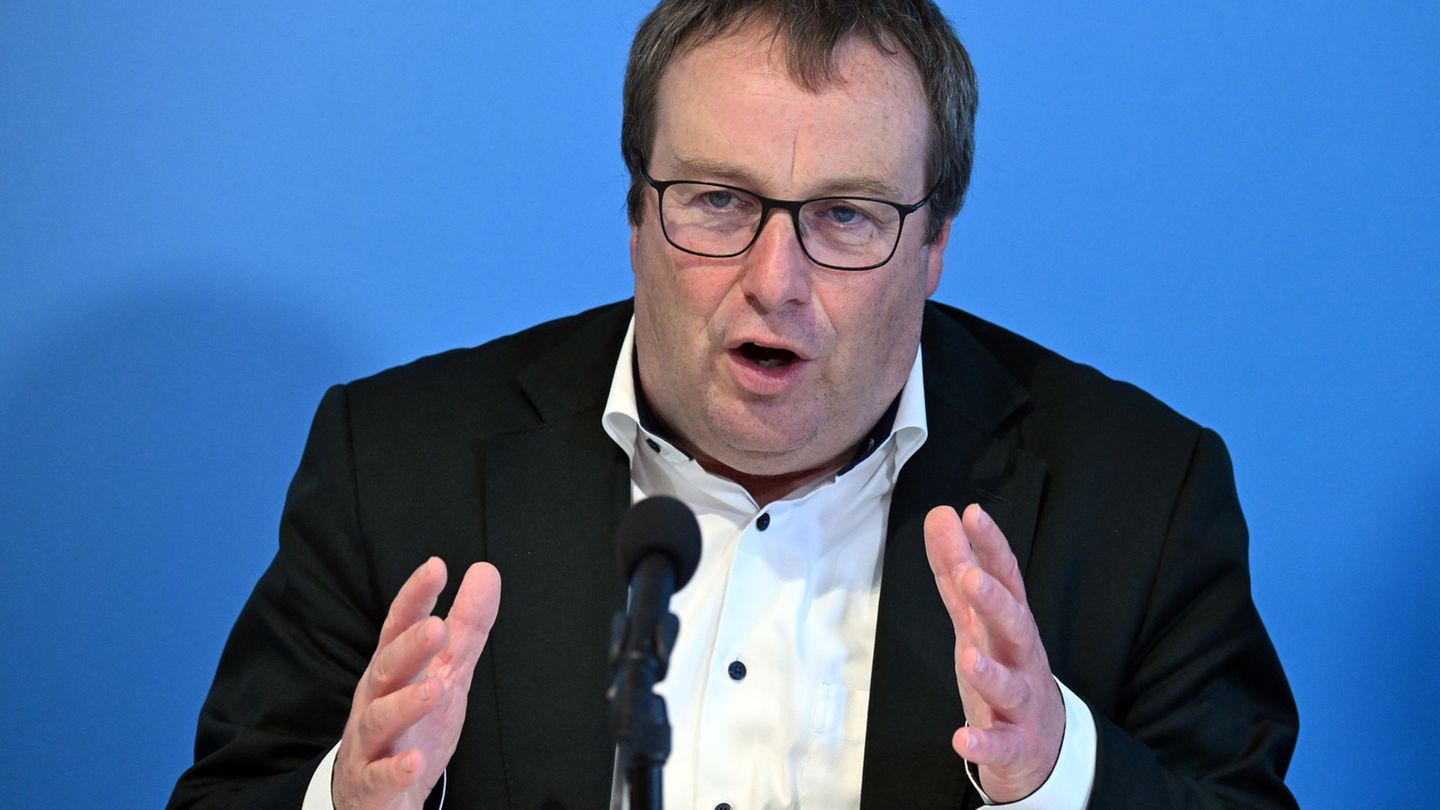Image: VOLKER WEIHBOLD

Image: VOLKER WEIHBOLD
The script for the budget council has a tradition. The welcoming words from Mayor Klaus Luger (SP) are followed by explanations from Finance Director Christian Schmid and the Vice Mayor Tina Blöchl (SP), who is responsible for finances, then there are presentations, praise and criticism. That’s how it was today in the Old Town Hall, where from 9 a.m. the new double budget for the years 2024 and 2025 was the focus of attention.
The SPÖ voted for the entire budget a few minutes ago, the ÖVP, the Greens, the FPÖ – that too has routine – only did so in large parts. All non-governmental parties abstained entirely or voted against the budget. Neos parliamentary group leader Georg Redlhammer justified this for his group with the words “A lot of good things are planned, but we are not giving a general amnesty.” Ultimately, there was a majority for the new double budget, as well as for the medium-term financial planning.
Difficult environment
869 million euros in income, 928 million euros in expenses for 2024. 897.8 million euros in income, 955.8 million euros in expenses for 2025. Investments of around 164 million euros. A mountain of debt that will grow to 983 million euros by 2025. These are, in brief, the key points of Linz’s budget for the next two years.
Creating it was not an easy task, said Schmid: “The challenges were omnipresent.” Blöchl also highlighted the difficult framework conditions: from geopolitical upheavals to high personnel costs and energy prices to high transfer payments to the state of Upper Austria. Blöchl invoked non-partisan solidarity and emphasized that with this budget, Linz would live up to its claim as an “urban, economically strong and climate-conscious” state capital.
More on the subject: The Linz budget for 2024 and 2025
For traffic officer Martin Hajart (VP), today’s budget council was a premiere; it was his first in his role as deputy mayor. In such “tricky financial” situations, “stability and reliability” are needed, which is what his group stands for, he said at the beginning of his speech. Hajart is very concerned about medium-term financial planning; the budget outlook is shocking: “We won’t be able to go far with an overflowing debt backpack.”

Image: VOLKER WEIHBOLD
Climate City Councilor Eva Schobesberger (Greens) criticized the fact that the city is making important and necessary investments for climate measures, but at the same time is supporting “climate killer projects” such as the Westring and the Auhof A7 semi-connection with 70 million euros.
Critically question funding services
This would counteract all efforts to make Linz a climate-friendly city, Schobesberger also warned against further sealing in the university district – and at the same time called on the local councilors to ask themselves what the city of Linz could look like if the said 70 million euros were spent instead of on motorways would be invested in public transport, trees and the like.
City Councilor for Security Michael Raml (FP) sees “the bare minimum” covered in the budget in all areas. But the aim cannot be to get bogged down in sideshows; he called for politics to be made in the interests of the vast majority of Linz’s population. Raml advocated that a budget policy with heart and common sense is needed so that certain funding benefits (including those for the Linz museums) are critically questioned.
“The state ÖVP doesn’t love Linz”
Redlhammer, meanwhile, spoke out strongly against the state ÖVP, saying it “doesn’t love” the city of Linz. If the state made the practice of transfer payments fairer, the city would not have to take on new debt, he argued.
The budget council traditionally also offers representatives of the different factions a platform to discuss things other than city finances – yesterday was no different than usual.
Gerlinde Grünn (KPÖ), for example, reiterated her demand for free lunch in municipal kindergartens and schools, Renate Pühringer (Linz+) called for more commitment to combating the care crisis. Norbert Obermayr (MFG) and Clemens Brandstetter (Change) also covered a wide range of content.
My themes
For your saved topics were
new articles found.

info By clicking on the icon you can add the keyword to your topics.
info
By clicking on the icon you open your “my topics” page. They have of 15 keywords saved and would have to remove keywords.
info By clicking on the icon you can remove the keyword from your topics.
Add the topic to your topics.
Source: Nachrichten




